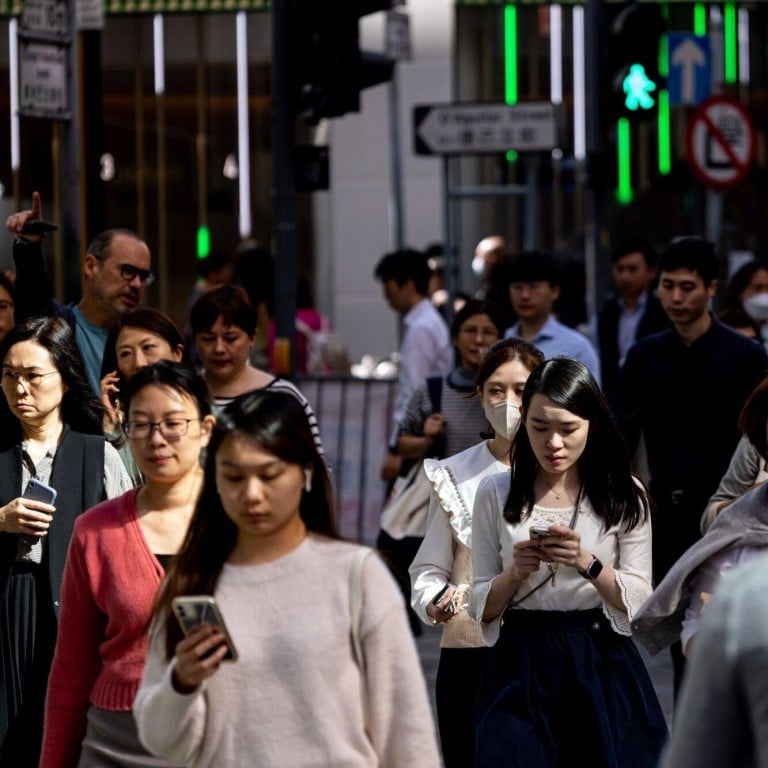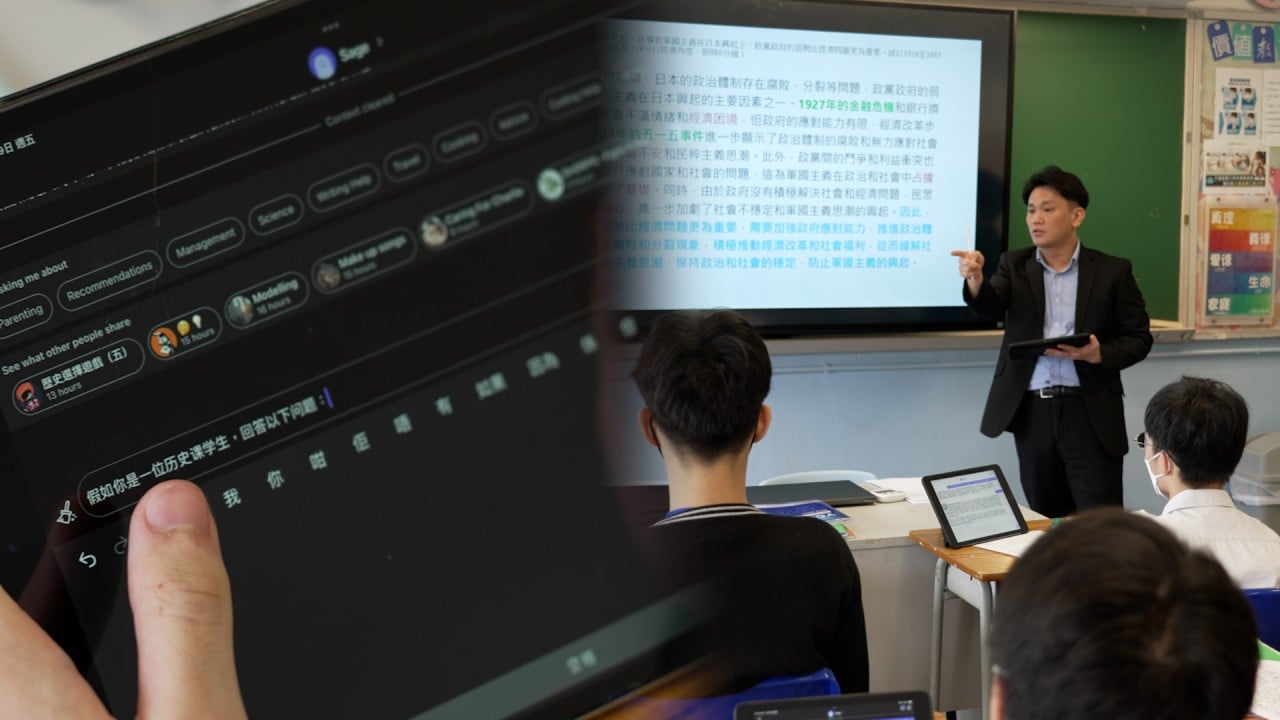
To become an AI hub, Hong Kong should start by preparing workers
- Hong Kong is committing billions to developing AI. But for the city to realise its ambitions, employers must do more to train workers and assuage concerns about safe use and job security
Already, Hong Kong’s workforce is embracing the technology. Eighty-four per cent of Hong Kong employees say they use some form of AI on the job, including 61 per cent who say it has improved their productivity, according to a global survey of more than 25,000 employees conducted in November by the Oliver Wyman Forum. Hong Kong’s usage is above the global average of 80 per cent and is roughly the same as Singapore’s.
But if Hong Kong is to become China’s AI hub and a global leader, employers must do more to train workers, assuage their concerns about using AI safely, and address its potential impact on jobs.
Most Hong Kong employees are already embracing AI, but they need training and reskilling.
Cybersecurity concerns and mistrust are reported by non-AI users in Hong Kong at higher rates than any other surveyed market. More than a third of Hong Kong workers, for example, say they do not use AI because AI tools have given them incorrect information in the past.
Employees who are using AI crave a better understanding of it. Nearly 90 per cent of Hong Kong workers say they want AI training, while two-thirds of those who are receiving training say it’s inadequate – the highest rate globally, with 65 per cent of Singaporeans reporting the same. Among those who use AI, 84 per cent say they have exposed company data by using generative AI tools – typically to analyse company data, summarise internal reports, or write email.
A strategic and comprehensive approach to upskilling can give AI-shy workers the confidence to use it safely, lower cybersecurity risks, and satisfy workers who crave an education. Businesses should offer unique training for individual roles to upskill workers most effectively, while hands-on workshops alongside generative AI can build proficiency and trust.
Risk management training is also just as essential as the more technical upskilling. Fifty-three per cent of Hong Kong employees say they have seen incorrect AI-generated outputs at work – a rate that only falls behind that of workers from India and Singapore. This poses a particular risk in areas like marketing or customer service, where inappropriate content can have significant repercussions.
Clear guidelines for when to use generative AI most effectively and with the least risk can help. Tailoring use cases with the right data sets and closely vetting outputs can give workers a more critical eye in using generative AI.
And to train talent, employers in Hong Kong must act swiftly to retain them – particularly white-collar workers that feed the city’s finance and tech dominance. A jaw-dropping 80 per cent of white-collar workers in Hong Kong say they are concerned that generative AI will make their jobs redundant – the highest rates globally after the United Arab Emirates and India. They’re also more likely to think that AI will decrease jobs in their fields than workers from other markets.
Anxieties about job redundancy may lead to a talent migration within the city. Thirty-seven per cent of Hong Kong workers say they are looking for new jobs out of fear that their work will partially be replaced by AI. Just 23 per cent of global workers say the same, perhaps stressing the urgency for Hong Kong’s businesses and government to assuage these fears.
AI is not out to kill humanity yet, but the threat to jobs is real
Opening a direct and honest dialogue with employees can help. Employers should communicate that they have their employees’ economic needs in mind and give workers a voice in how AI is integrated into their work. Allowing generative AI to automate repetitive tasks can empower employees to focus on the more human aspects of their work, while ensuring that the benefits and disadvantages of AI do not concentrate among specific groups of workers can foster a sense of equity and inclusion.
To establish Hong Kong as a destination for AI firms, it is vital to understand how workers are reacting to generative AI’s emergence. Government and business initiatives to communicate and upskill the workforce can help retain talent and keep the public and private sectors more competitive.
Ben Simpfendorfer is an Oliver Wyman partner based in Hong Kong


